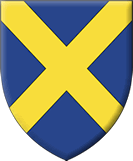


PLASTIC FREE

A Problem of Plastic
Plastic Facts
Single use "disposable" plastic is creating a huge environmental problem globally. Much of it is ending up in the sea where it is creating huge "plastic islands" in many of the worlds oceans.
Plastic on land and in the sea gradually degrades, breaking down into tiny micro-plastic particles which enter the food chain, eventually ending up in the animals people eat. Toxic chemicals (especially BPA and phthalates) leach out of plastic and are found in the blood and tissue of nearly all of us. Exposure to them is linked to cancers, birth defects, impaired immunity, endocrine disruption and other ailments.
Micro-plastics also leech into the water supply, and a study found that nearly all tested bottled water contained micro-plastic particles.
Plastic pollution also seriously harms animals. Over 260 species, including invertebrates, turtles, fish, seabirds and mammals, have been reported to ingest or become entangled in plastic debris, resulting in impaired movement and feeding, reduced reproductive output, lacerations, ulcers and death.
Plastic pollution also causes billions of pounds of damage to marine ecosystems every year, affecting anyone who relies on the sea for their livelihood.

What are we doing?
We've partnered with Plastic Free St. Albans
We're working with Plastic Free St. Albans to reduce the quantity of single use plastics consumed in St. Albans.
We're promoting water bottle refill points
Christelle from Plastic Free St. Albans (of which St. Albans Friends of the Earth is a partner) is working with St. Albans District Council, Affinity Water and St. Albans BID (city centre businesses) on St. Albans Refill. Under this scheme businesses display a sticker in their shopfront indicating that they are happy to fill up your bottle for free. It reduces the number of plastic bottles we get through, and, for participating businesses, improves their green credentials and gets potential customers through the door.
If you’re a business who’d like to join in, then simply sign up using the free Refill App (available from your App provider). You can collect stickers to show your participation from St. Albans District Council reception.
And if you’d like your favourite cafe to participate then you can ask them before adding them to the network via the free Refill App.
It’s well worth getting the Refill App on your phone as each time you Refill you can log a point on your phone and work your way to a smart, steel water bottle. Also, you’ll be showing how useful the scheme is for you.
As part of this scheme, 2 water fountains are planned for St. Albans later this year, with more to follow as funds allow.
We organised a Plastic Free Picnic
Together with Plastic Free St. Albans, we held a plastic free picnic on the 22nd April 2018, in Highfield Park, as part of the St. Albans Sustainability Festival. The Mayor attended, and participants brought along non plastic games such as cricket without a piece of plastic in sight!
We obtained the support of Anne Main, our MP, for the Plastic Pollution Bill.
We met with Anne Main on 1st March 2019 to ask her to support the Plastic Pollution Bill which is currently making its way through parliament. The bill aims to dramatically reduce the huge amount of plastic waste entering our environment. Anne was very happy to support the bill and even pose for a photograph with us! Full details can be found here.
We promoted the "Don’t Let Go!" Petition
Inspired by the Marine Stewardship Councils campaign, Plastic Free St. Albans is seeking to prevent local balloon releases, and to discourage the use of balloons by businesses as promotional materials.
Latex balloons are often marketed as biodegradable, but in practice take many years to break down. They also often have plastic ribbons attached to them, which do not biodegradable. Balloons and their ribbons are very frequently found as river and beach litter, where they kill wildlife. Sea creatures and birds mistake them for jellyfish, blocking their intestines, and animals get entangled in the ribbons.
It’s also a waste of helium, needed for medical purposes.
Please sign the petition to Herts County Council, to ask them to ban balloon releases on their land.
Environment Matters on Radio Verulam
With recent revelations about plastic in teabags and coffee cups, and tricky items like roll on deodorant bottles and black food trays, it's hard to know what to do with these items.
St. Albans District Council Waste and Recycling Officer Louise Palmer sorts out your recycling conundrums on this podcast of Environment Matters on Radio Verulam 92.6 FM. You can catch new episodes every Wednesday at 7 pm on Wednesday evening and after that on podcast from https://www.radioverulam.com/podcast